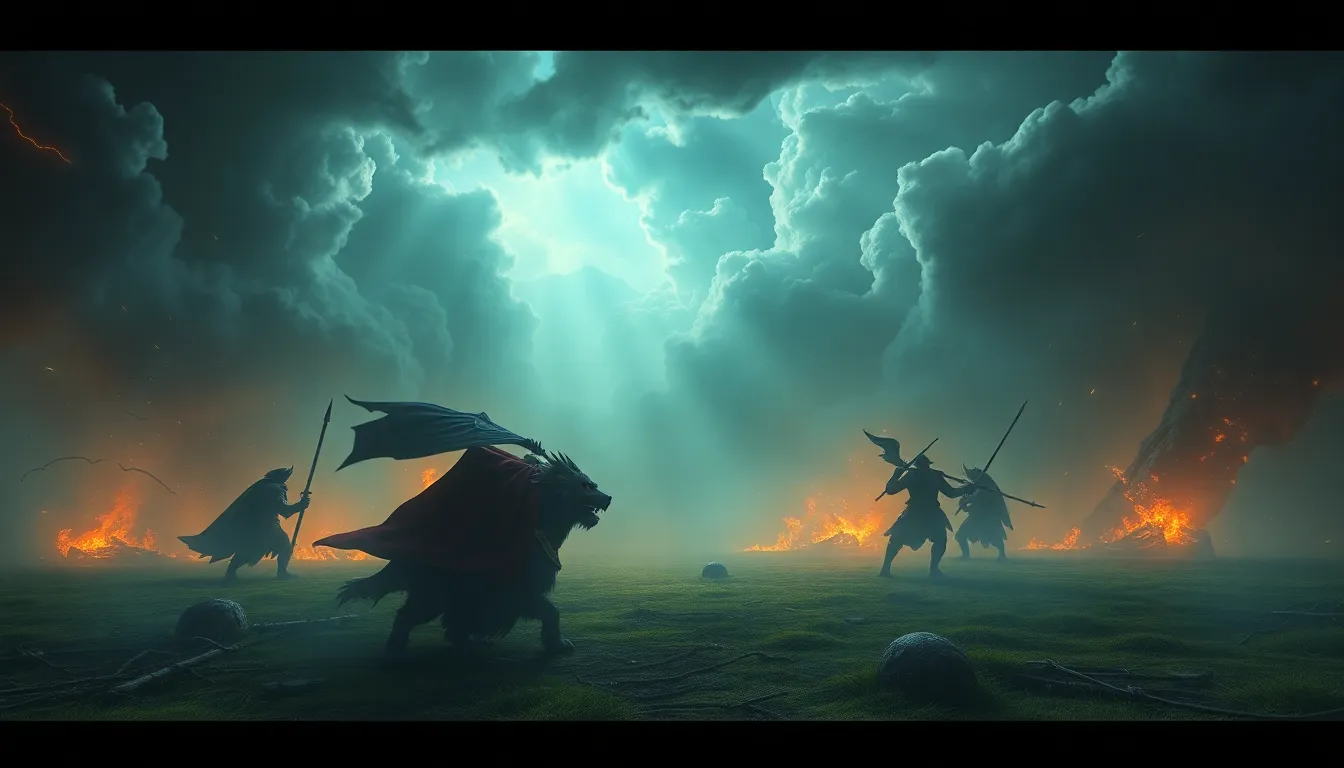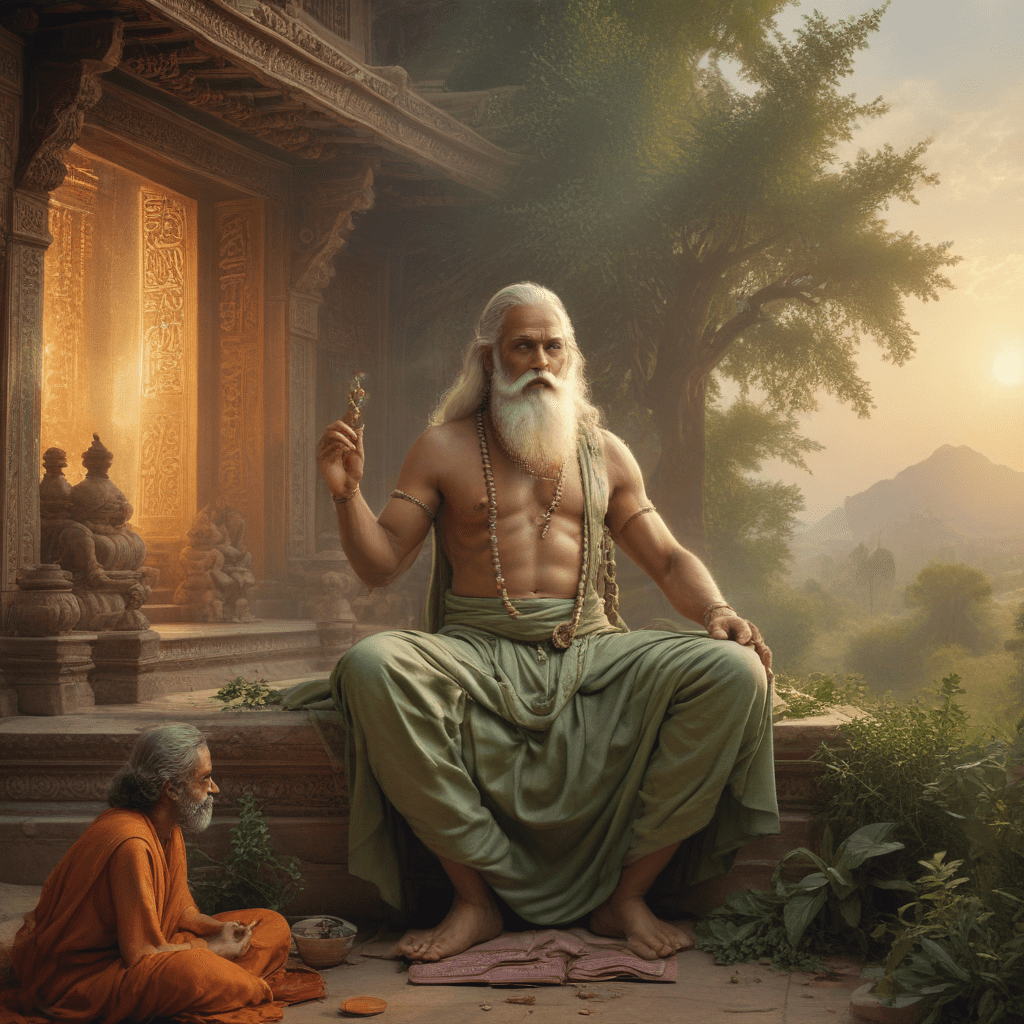The Mythical Battlefield: Legendary Fights Through Time
I. Introduction to Mythical Battlefields
A mythical battlefield is a conceptual arena where legendary conflicts unfold, often involving gods, heroes, and mythical creatures. These battlefields serve as a backdrop for epic stories that shape cultural narratives and collective memory.
Legendary fights throughout history and culture are not just tales of valor; they are essential to understanding the values, struggles, and aspirations of societies. They often embody the ideals of courage, honor, and sacrifice, resonating through generations.
This article aims to explore various mythical battlefields, delving into ancient myths, historical conflicts, and the lasting impact of these legendary fights on culture and modern media.
II. Ancient Myths and Legendary Conflicts
A. The Trojan War: Heroes and Gods in Battle
The Trojan War, a central theme in Greek mythology, showcases the interplay of human and divine intervention in warfare. Legendary heroes like Achilles and Hector fought valiantly, while gods such as Zeus and Athena influenced the outcomes of battles. This epic conflict, immortalized in works like Homer’s “Iliad,” highlights themes of fate, honor, and the tragic cost of war.
B. The Epic of Gilgamesh: Friendship and Warfare
The “Epic of Gilgamesh” from ancient Mesopotamia tells the story of the heroic king Gilgamesh and his friend Enkidu. Their adventures include battles against mythical creatures, exploring the values of friendship and the pursuit of glory. This epic not only illustrates the nature of combat but also reflects the human condition and the quest for immortality.
C. The Battles of the Mahabharata: Duty, Honor, and Cosmic Struggles
The “Mahabharata” is one of the longest epics in the world, detailing the great Kurukshetra War between the Pandavas and Kauravas. It addresses profound themes of dharma (duty) and righteousness, with legendary figures like Arjuna facing moral dilemmas on the battlefield. The epic intertwines personal conflict with cosmic stakes, emphasizing the philosophical underpinnings of warfare.
III. Historical Battles That Shaped Nations
A. The Battle of Thermopylae: Valor Against Overwhelming Odds
The Battle of Thermopylae in 480 BCE is a legendary stand of 300 Spartans against the vast Persian army. Their unwavering courage and strategic positioning became symbols of heroism and sacrifice, inspiring countless generations. This battle illustrates the concept of fighting for freedom against tyranny.
B. The Siege of Jerusalem: Faith and Ferocity in Conflict
The Siege of Jerusalem in 70 CE marked a significant conflict during the First Jewish-Roman War. The fierce resistance of the Jewish defenders against Roman forces was a testament to their faith and determination. This event has left a lasting legacy in Jewish history and religious narratives.
C. The Hundred Years’ War: Legends of English and French Kings
The Hundred Years’ War (1337-1453) was a series of conflicts between England and France, featuring legendary figures like Joan of Arc and King Henry V. The war reshaped national identities and left an indelible mark on both countries, intertwining history with legend as tales of bravery and tragedy emerged.
IV. The Role of Mythology in Shaping Warfare
A. The Influence of Deities on Battle Outcomes
In many ancient cultures, deities played crucial roles in determining the outcomes of battles. For instance, in Greek mythology, Athena was revered as the goddess of wisdom and warfare, often invoked for victory. The belief in divine favor influenced strategies and morale among soldiers.
B. Propaganda and Storytelling in Ancient Armies
Ancient armies often utilized propaganda, weaving stories that framed their conflicts in heroic or moral terms. These narratives served to inspire troops and unify people, creating a shared sense of purpose. The legends surrounding battles helped to solidify national identities.
C. Symbolism of Legendary Figures in Combat
- Achilles: Representing the ideal warrior, embodying both strength and vulnerability.
- Joan of Arc: A symbol of faith and courage, transcending gender norms in warfare.
- Arjuna: A representation of the moral warrior, facing ethical dilemmas in battle.
V. Legendary Creatures and Their Impact on Battles
A. Dragons in European Lore: Guardians or Destroyers?
Dragons are prominent in European mythology, often depicted as mighty creatures that can turn the tide of battle. Depending on the narrative, they can serve as guardians of treasure or fearsome adversaries that heroes must defeat to prove their worth.
B. The Phoenix: Symbol of Rebirth in Warfare
The mythical phoenix, known for its ability to rise from its ashes, symbolizes resilience and renewal. In the context of warfare, it represents the idea that from destruction can come new beginnings, a powerful narrative in the aftermath of conflict.
C. Beasts of Burden: The Role of Mythical Animals in Historical Fights
Mythical animals, such as griffins and unicorns, often appear in historical narratives, serving various roles in battles. They can symbolize strength, nobility, or the mystical aspects of warfare, enhancing the legendary quality of historical conflicts.
VI. The Art of War in Mythical Narratives
A. Strategies and Tactics from Legendary Battles
Mythical narratives often reveal sophisticated strategies and tactics employed by legendary figures. These tales provide insights into ancient warfare, illustrating how cunning and bravery can turn the tide of battle.
B. The Use of Magic and Supernatural Elements
Magic and supernatural elements frequently play crucial roles in mythical battles. Heroes often wield enchanted weapons or receive divine assistance, showcasing the belief that the forces beyond the material world can influence the outcome of human conflicts.
C. The Role of Prophecy in Battle Decisions
Prophecies often guide the actions of legendary heroes, shaping their decisions and fates. These prophetic elements add a layer of complexity to battle narratives, suggesting that destiny and free will coexist in the realm of warfare.
VII. Cultural Interpretations of Legendary Battles
A. How Different Cultures Portray Conflict in Mythology
Diverse cultures interpret conflict through unique mythological lenses. For instance, Norse mythology depicts battles as essential to the cycle of life and death, while Hindu epics emphasize moral dilemmas and righteousness in warfare.
B. The Influence of Folklore on National Identity
Folklore surrounding legendary battles often plays a pivotal role in shaping national identities. These stories instill a sense of pride and belonging, reinforcing the values that define a culture.
C. The Evolution of Heroic Archetypes Through Time
Heroic archetypes evolve as societies change, reflecting contemporary values and challenges. For example, the modern hero may grapple with internal conflicts, contrasting with ancient heroes who often embody clear-cut ideals of honor and bravery.
VIII. The Legacy of Mythical Battles in Modern Media
A. Film and Television Portrayals of Legendary Fights
Modern media often revisits legendary battles, bringing them to life through film and television. These portrayals, such as “Troy” and “300,” reinterpret ancient conflicts for contemporary audiences, highlighting timeless themes of heroism and sacrifice.
B. Literature and Video Games: Reviving Historical Legends
Literature and video games frequently revive historical legends, allowing audiences to engage with mythical narratives in interactive ways. Titles like “God of War” and “The Witcher” draw on rich mythological traditions, immersing players in epic tales of conflict.
C. The Impact of Myth on Contemporary Warfare Narratives
Myth continues to influence contemporary narratives surrounding warfare, shaping public perception and understanding of modern conflicts. The stories of legendary battles serve as cautionary tales and sources of inspiration, reminding society of the complexities of war.
IX. Lessons from the Legendary Battlefield
A. The Moral and Ethical Implications of War
Legendary battles often prompt reflections on the moral and ethical implications of warfare. They encourage discussions about the justifications for conflict, the nature of heroism, and the costs of war on society.
B. The Importance of Remembering History
Remembering legendary battles is crucial for understanding the past and its lessons. Engaging with



